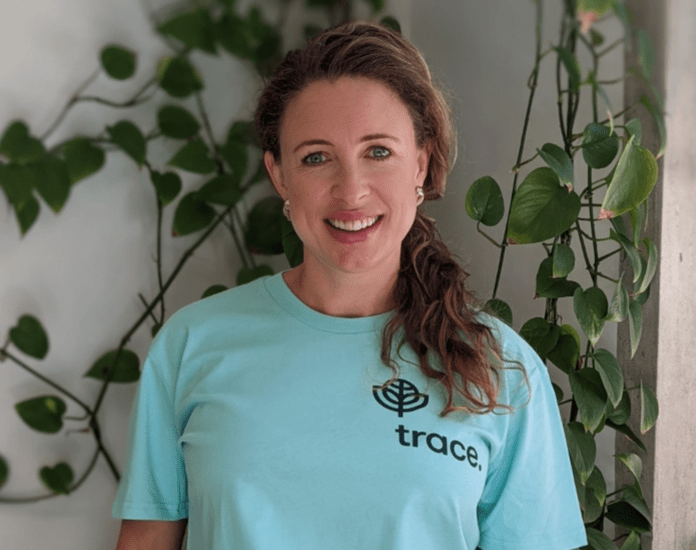
By:

Trace began in 2020, just as the world was waking up to the urgency of climate change, with a simple mission: to help businesses calculate their carbon emissions, create a decarbonisation plan, build a sustainability culture, and track their progress.
Back then, events like Australia’s devastating bushfires showed the pressing need for action. We launched Trace to empower every business to achieve net zero—cutting emissions wherever possible and offsetting the rest.
Not every company can afford a sustainability expert, so we built an easy-to-use platform to bridge that gap. Today, this isn’t just about doing good; it’s becoming a legal requirement. The last few years have brought rapid legislative change, and we’re here to help businesses prepare. Accountants, as trusted advisors, have a massive role to play in guiding their clients through this transition.

Cat Long
CEO and co-founder of Trace
Mandatory climate reporting is about creating transparency. Think of it like this: you can’t lose weight if you don’t know your calorie intake, and you can’t cut emissions if you don’t know your carbon footprint.
Some businesses assume they have no footprint because they’re “paperless” or “all online.” While they’re not wrong compared to industries like mining or energy, every business activity—from powering an office to delivering goods—has an impact.
This reporting forces companies to measure their emissions so they can start making real progress. It’s a big shift in corporate accountability, and accountants will be central to helping businesses embrace this change.
Tune into this episode of the AD Insider to gain a snapshot of the climate reporting landscape and how companies and accountants can prepare for it.
“We’re paperless, we’re all online, so we don’t have a footprint.”
- Cat Long, CEO and co-founder of Trace
Eighteen months ago, I might have said accountants had a limited role. But the landscape has shifted dramatically with new legislation, particularly since June 2024. CFOs and business owners are asking their accountants, “What do we need to do?”
Accountants are uniquely positioned as trusted advisors. If they can simplify the process and provide a clear roadmap, they’ll not only help their clients succeed but also strengthen those relationships. Those who don’t adapt, risk losing clients to firms that can provide this guidance.
This is a chance for accountants to step up, provide clarity, and lead their clients into the future.
It starts with education. Make sure your team understands the legislation and can explain it clearly—especially who it affects. While it currently targets large enterprises, SMEs will feel the impact by 2027, and businesses with as few as 100 employees will need to report.
Getting ahead of this now will prevent a scramble as deadlines approach. Even businesses not directly affected by legislation will face supply chain pressures. For example, large companies like AstraZeneca are asking their suppliers to meet emissions reporting standards. Whether directly or indirectly, thousands of SMEs will need to adapt.
Accounting firms that prepare now will not only help their clients but also differentiate themselves as leaders in this space.
Big firms are ahead—they’ve seen this coming and have started building teams to handle climate reporting. Smaller firms, however, are far less prepared, though many see the opportunity.
Offering climate services isn’t just about compliance; it’s a chance to grow revenue, improve your reputation, and attract top talent. Firms that take action now will set themselves apart and be ready to meet the demand.
Accountants play a critical role for SMEs. Just as tax compliance is standard, climate reporting will soon be part of every business’s operations. Start preparing now—if you don’t, your competitors will, and you risk falling behind.
For SMEs, compliance may seem like a hassle, but it’s an opportunity to lead. Early adopters not only help the planet but gain a competitive edge. This isn’t just about meeting requirements; it’s about embracing change and making a difference.
The planet needs all of us to reduce emissions by 90% over the next few decades. Every step counts, and those who act now will shape a better future for everyone.

Cat Long
CEO and co-founder of Trace
Trace is a carbon management platform designed to empower every business to reach Net Zero and build a culture of sustainability. With global mandatory climate reporting on the horizon and growing pressure from consumers, employees, stakeholders and supply chains to reduce emissions, Trace provides the tools and expertise necessary to measure, reduce, and report carbon emissions for you and your clients.
By partnering with Trace, accounting firms can future-proof their practice, staying ahead of regulatory demands while tapping into new revenue streams through ESG and sustainability advisory services. The Trace Partnership Program equips firms with the technology and knowledge to seamlessly add carbon accounting services to their toolkit. Through our comprehensive training, including the Carbon Accounting Fellowship, and easy-to-use software, we support accountants in becoming trusted advisors in climate-related reporting, helping their clients navigate the path to Net Zero, while positioning your practice for future success.

You are not authorised to post comments.
Comments will undergo moderation before they get published.